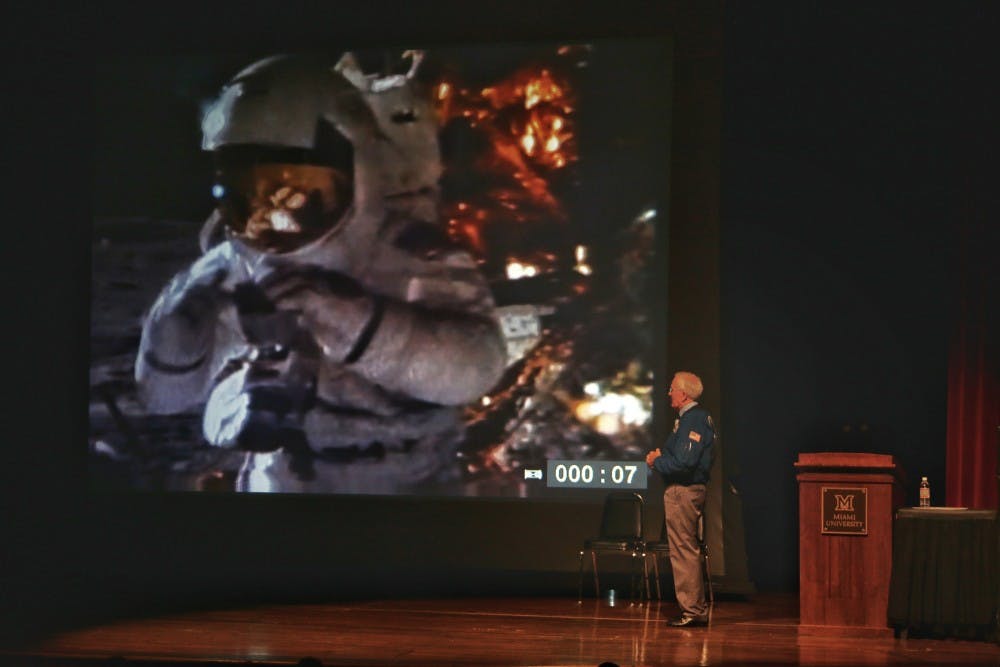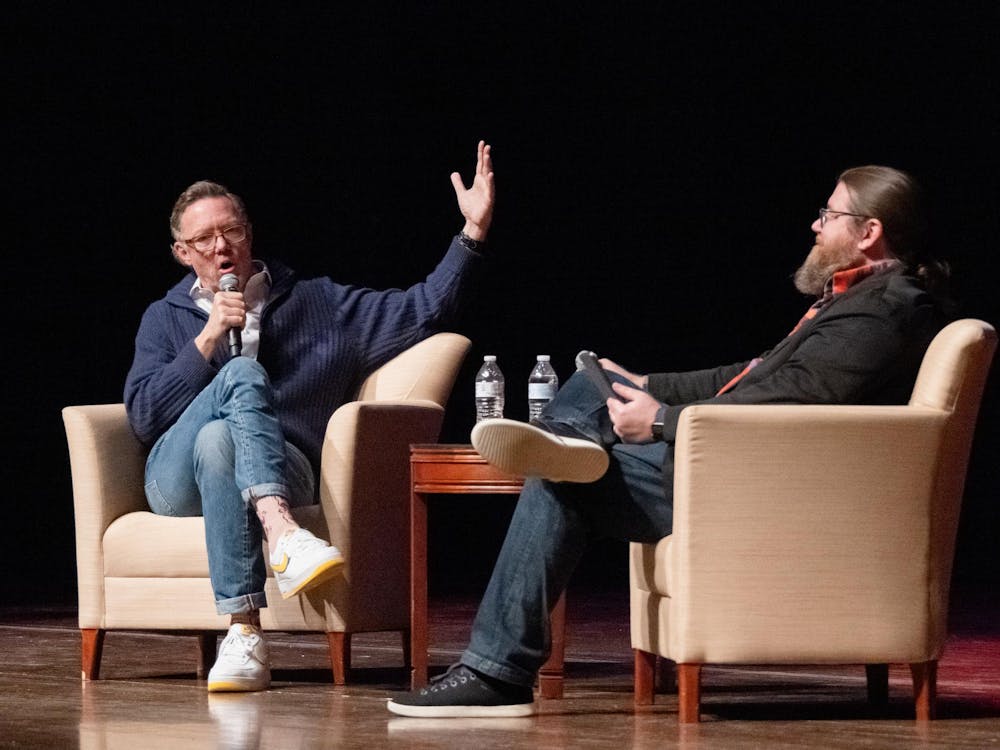Revered general, Charles Duke, was in tenth grade when he decided he wanted to serve his country. Duke knew he wanted to fly planes and he did, but he never imagined he would land a lunar module on the moon.
"There was no such thing as astronauts when I was a kid," said Duke. "I didn't go out in the backyard, look up in the sky and say, 'Mama, I want to walk on the moon.'...Mama would have sent me to the psychiatric hospital."
Three years ago, Miami University seniors Avnika Bali and Jana Cable never imagined they would be presented an award for their scientific research by a former Apollo 16 astronaut.
Bali recalled the first time she witnessed an astronaut lecture her freshman year at Miami.
"I had yet to watch the Redhawks win a hockey game or pull my first all-nighter at Pulley Diner studying for organic chemistry," Bali said. "But I certainly never envisioned I would be standing on this stage, speaking to the audience like this."
Nevertheless, on Thursday, Sept. 28, in packed-to-the-brim Hall Auditorium, Duke, Bali and Cable shared the same stage.
Bali, a biochemistry and biological physics double-major and Cable, a microbiology major, were presented Astronaut Scholarship Foundation awards by board chairman, Duke, for the advanced research in their chosen fields.
The Astronaut Scholarship Foundation was founded by the six surviving Mercury 7 astronauts to encourage young people to keep America on the edge of new technology and scientific discovery.
Duke recalled that over his 15 years working for the foundation, a lot has changed.
The number of scholarships has increased from 20 to 40 and the students receiving them continue to impress even someone who has stepped on the moon.
"The two girls getting these scholarships today...you read their bios and 'Golly!' can you pronounce some of the stuff they are doing?" Duke said.
Bali's undergraduate research involves using a method called electron paramagnetic resonance (EPR) to illustrate a membrane-mimetic and to, hopefully, use it as a model for studying membrane proteins.
Enjoy what you're reading?
Signup for our newsletter
Cable had been researching myosin binding Protein-C, a protein involved with modulating muscle contraction in our bodies.
"[With] two chemists as parents, my love for science was fostered at a young age," Cable said."Science projects and books led me to continue with science during college, even if I found it rebelling by choosing microbiology."
On top of their rigorous scientific research, both girls are involved in the University Honors Program, where Bali serves on the Honors Student Advisory Board (HSAB). Cable is also the president of Miami's Habitat for Humanity Organization.
Both girls plan to use their monetary awards toward graduate school, where they hope to continue learning more about their chosen fields.
After being presented their awards by Duke, he went on to describe his own experiences in the in the scientific field.
While Duke received a bachelor of science from the U.S. Naval Academy and a master of science in aeronautics from the Massachusetts Institute of Technology, his opportunity to become an astronaut didn't come until later.
After responding to a newspaper advertisement in the Los Angeles Times in 1966, Duke was one of 19 men selected to serve as an astronaut for the National Aeronautics and Space Administration, better known as NASA.
Duke had the opportunity to watch astronauts Buzz Aldrin, Neil Armstrong and Michael Collins be the first men to land on the moon in 1969 from the mission control room at the Kennedy Space Center.
However, in April of 1972, Duke himself touched both feet on the moon, becoming the youngest man in history to do so.
Months of geological, lunar surface and physical training prepared Duke to make it safely to the moon, but not for what he saw when he arrived.
"It was an emotional high. Wonder. Awe. Beauty. Excitement," Duke said. "It was like you were just bubbling inside, you know, 'I'm on the moon, I'm on the moon."
Cable and Bali did not necessarily feel the same type of euphoria upon receiving their awards, but it was a step to fulfilling their goals for the future and reassurance that they are making a contribution to society.
"Science, engineering and math are critical to keeping a country on the forefront of technology," Duke said. "In science, there is so much to be discovered and so much good that comes from these discoveries."
franconc




